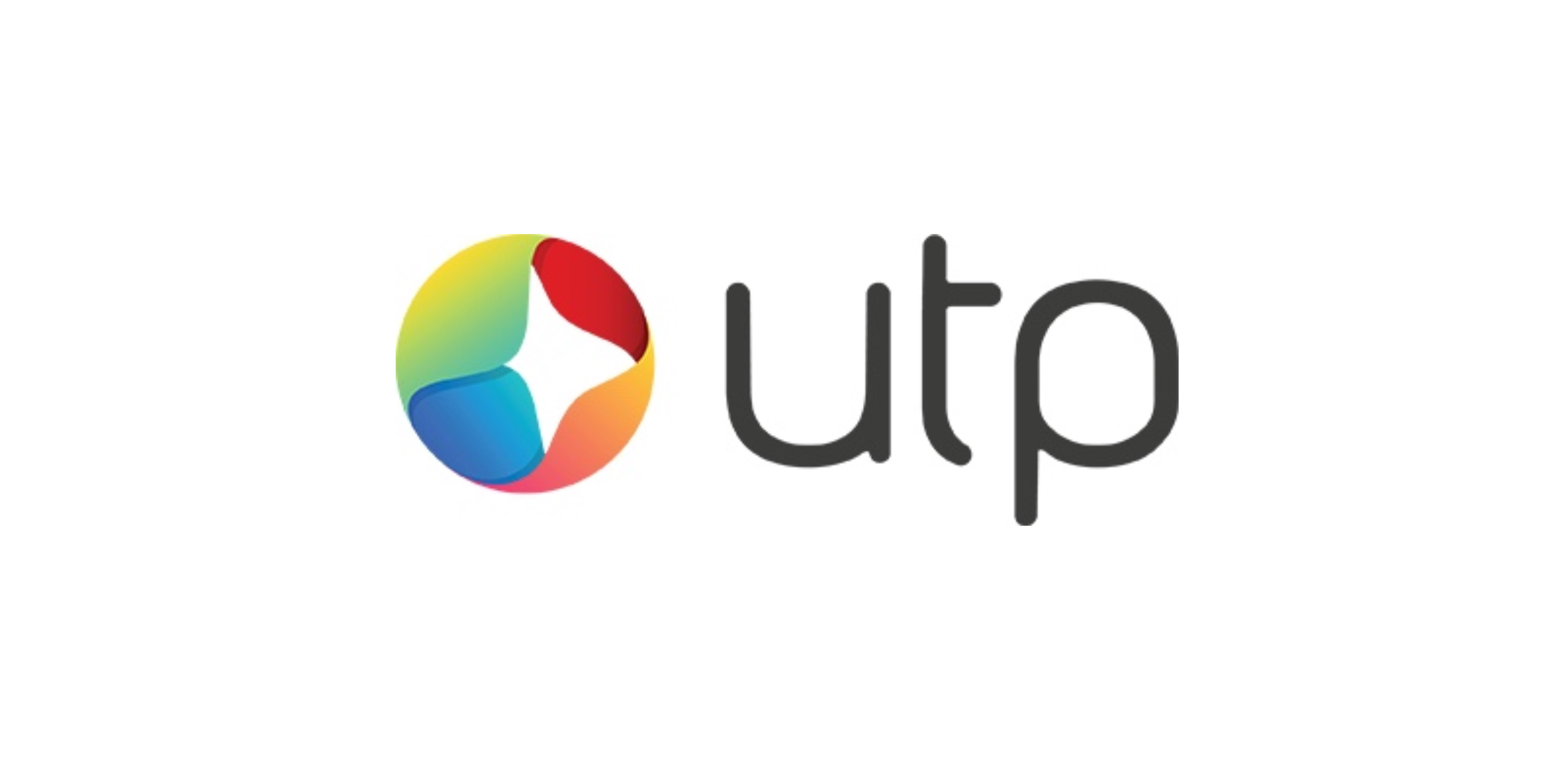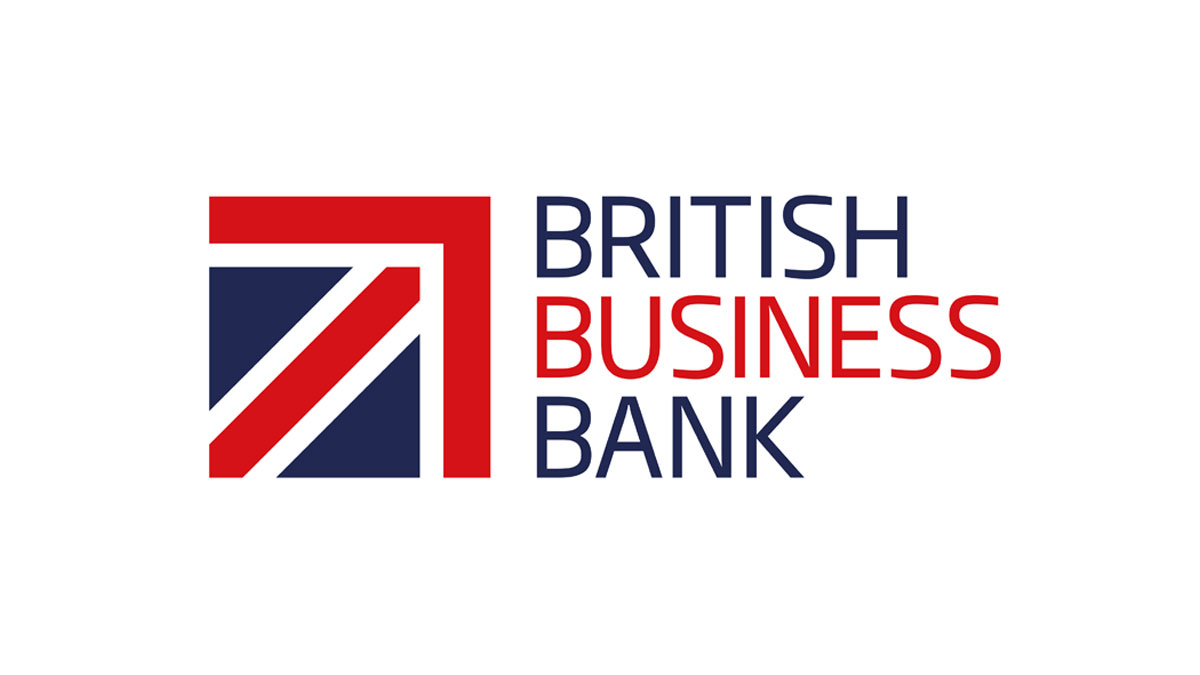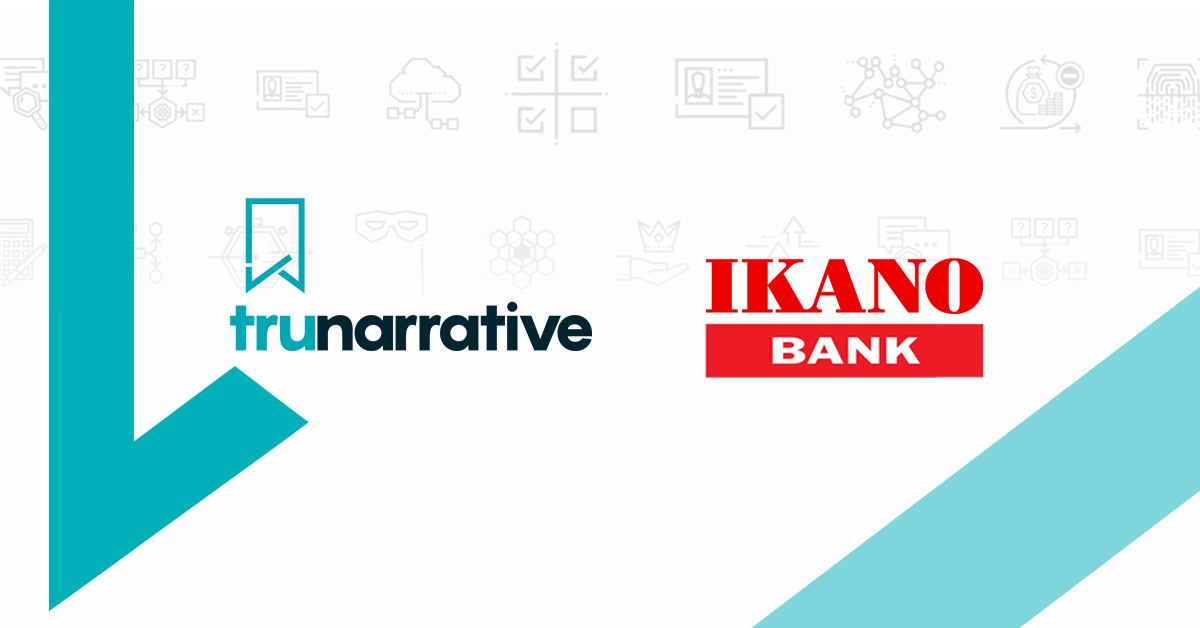Published
- 06:00 am

UTP Pro, which is approved by Barclaycard and accredited by both Mastercard International and VISA Europe, officially launches on 1 April and is expected to rollout to thousands of businesses by the end of 2021. This will include businesses across the in-store retail and hospitality sectors that have been particularly hard-hit by pandemic and the lockdowns that have followed.
UTP Group prides itself on being the only card processing company in the market that provides Faster Processing; processing transactions and getting those funds to its clients on the same day, in batches throughout the day or even within an hour. These new payment terminals, adapted from A920 Pax machines, build on this as each utilises a new Android operating system. This means an array of enhanced features will immediately open up for businesses and present new opportunities to engage staff, serve customers and continue to seamlessly provide transaction funds to its clients as we start to emerge from the national Covid-19 lockdown.
UTP believes technology has a key role to play in this, as the UTP Pro terminal will come with an Electronic Point of Sale (EPoS) application as standard, along with a reporting app that will give live updates to the user. This will allow them to easily see such statistics as the value and volume of transactions that each reader has processed, the most popular items they have for sale and when they are busiest.
Data provided by the UTP Pro will help businesses to anticipate demand and stay informed when planning stock management and staffing rotas, ultimately improving cashflow management and business efficiencies.
In theory, anyone will be able to develop applications for the Android Store, meaning there is now a possibility for businesses to ‘shop around’ and personalise the readers they have in-store, so they are more suited to the specific requirements of each type of business, whether it be a busy pub or a small hair and beauty salon.
Michael Ault, founder and CEO of UTP, said: “The timing of the UTP Pro launch is significant. As a nation we are on the cusp of opening up fully again in the wake of Covid-19, and businesses need all the support they can get when it comes to catching up on lost revenue."
“The development and rollout of the UTP Pro payment devices is just the first step in a plan to ensure our customers are well-equipped to deal with new in-store environments and changing consumer needs. As part of this we are offering this new feature-rich machine at the same price point as our existing terminals."
“Smart and adaptable payment devices play a key part in the future of business in the UK, and so, the majority of our new readers going forward will run on an Android OS. By using these new machines, all our clients will benefit from a solution that is future-proofed, and which also includes tools that will make it easier for them to run and grow their business.”
For more information on the UTP Pro payment devices, please visit www.utpgroup.co.uk/card-machines/utp-pro.
Related News

Andy Baillie
Regional VP EMEA at Seismic
COVID-19 has been a curate’s egg for financial services. see more
- 07:00 am

“The FinTech gender gap is most stark at the top – recent studies have demonstrated that woman represent just 14% of FinTech board seats. At Zumo women represent over 40% of our team and the same in our management team. Moreover, reports often place crypto owners as being less than 10% female… For Zumo, this isn’t a future we believe in.” - Dagmara Aldridge, COO – Zumo
Now representing some 36% of the Zumo consumer base, women make up a key customer segment for the Edinburgh based FinTech brand, bucking the market trend of being disproportionately male dominated.
Following a national survey carried out by the brand in Q1 2021, there were clear learnings as to why women underrepresented within the space. 56% of females said the reason they have never purchased crypto was because they feel they don’t know enough about it while only 49% of men felt the same.
Discussing why women seem feel less comfortable with the sector than men, CMO to Marketing Director of Zumo , Amelie Arras said:
“Our approach to marketing crypto has to change – not to make it more “female friendly” but to make it more accessible for all. Working from the base line that there isn’t an intellect issue, then the lack of understanding for women is rotted in something deeper… This comes down to everything from the language we use, the pictures we create, and ultimately the content we put out into the wider world. That change happens from within, and it’s impossible to influence this without ensuring diversity exists at all levels of your business internally.
Lockdown was a period of change for the crypto market, seeing unparalleled growth from currency like Bitcoin, but also in terms of female representation with a CoinMarketCap report in April 2020 identifying that the number of women within the crypto industry grew by 43.24% in the first quarter of 2020.
“Change is coming- when asked if they would rather have £1,000 of crypto vs. stock, woman outranked men as crypto advocates. The same was true of government bonds, gold and property indicating that there’s not only a real appetite to move in the space, but a passion for the potential of its long-term value.” Devina Paul, CFO - Zumo
Related News
- 08:00 am

The Recovery Loan Scheme, a new scheme to support access to finance for UK businesses as they recover and grow following the pandemic, opens to applications from today. The scheme, announced at the Budget on 3 March 2021, is scheduled to run until 31 December 2021, subject to review.
The new scheme will support borrowing of up to £10m for individual businesses and up to £30m across a group, and, once received, the funds can be used for any legitimate business purpose, including managing cashflow, growth and investment. It is designed to appeal to businesses that can afford to take out additional finance for these purposes.
The British Business Bank, which will administer the scheme on behalf of the Government, played an important role during the pandemic, by administering the Bounce Back Loan Scheme (BBLS), Coronavirus Business Interruption Loan Scheme (CBILS) and Coronavirus Large Business Interruption Loan Scheme (CLBILS). The new Recovery Loan Scheme will continue to support smaller businesses as they steer a path towards a sustainable recovery.
Scheme features include:
- Up to £10m facility per business: The maximum amount of a facility provided under the scheme is £10m per business (maximum £30m per group). Minimum facility sizes vary, starting at £1,000 for asset and invoice finance, and £25,001 for term loans and overdrafts.
- Wide range of products: Businesses can choose from term loans, overdrafts, asset finance and invoice finance (subject to the lender being accredited for each of these finance types).
- Term length: Term loans and asset finance facilities are available from three months up to six years, with overdrafts and invoice finance available from three months up to three years.
- Interest and fees to be paid by the business from the outset: Businesses are required to meet the costs of interest payments and any fees associated with the RLS facility.
- Access to multiple schemes: Businesses that have taken out a CBILS, CLBILS or BBLS facility are able to access the new scheme, although the amount they have borrowed under a previous scheme may in certain circumstances limit the amount they may borrow under RLS.
- Pricing: The annual effective rate of interest and upfront and other fees cannot be more than 14.99%.
- Personal Guarantees: Personal guarantees are not permitted for facilities of £250,000 or less. Above £250,000 the maximum amount that can be covered under RLS is capped at a maximum of 20% of the outstanding balance of the RLS facility after the proceeds of business assets have been applied. No personal guarantees can be held over Principal Private Residences.
- Recovery Loan Scheme-backed facilities are provided at the discretion of the lender.
- Guarantee to the lender: The scheme provides the lender with a government-backed guarantee against the outstanding balance of the facility. The borrower always remains 100% liable for the debt.
Eligibility criteria include:
- Covid-19 impact: The borrower must confirm to the lender that it has been impacted by Covid-19.
- UK-based: The borrower must be carrying out trading activity in the UK.
- Viability test: The lender will consider that the borrower has a viable business proposition but may disregard any concerns over its short-to-medium term business performance due to the uncertainty and impact of Covid-19.
- Credit and fraud checks for all applicants: Lenders are required to undertake credit and fraud checks for all applicants, as well as customary checks such as Know Your Customer and Anti-Money Laundering. The checks and approach may vary between lenders.
- Turnover limit: There is no turnover restriction for businesses accessing the scheme.
How to apply
Lenders previously accredited to provide CBILS have been invited to apply for accreditation for the Recovery Loan Scheme. Once accredited, lenders under the scheme will be listed on the British Business Bank website, and we expect to add many more lenders over the coming weeks.
In the first instance, businesses should approach their own finance provider – ideally via the lender’s website. They may also consider approaching other lenders if they are unable to access the finance they need.
Related News
- 05:00 am

Ikano Bank has procured fraud prevention technology services from UK based RegTech firm, TruNarrative. The decision is part of Ikano’s digital transformation programme and will see the TruNarrative platform integrated with Ikano’s new technology architecture to facilitate their Europe wide fraud prevention strategy.

Founded by the family behind global retailer IKEA, Ikano Bank offers simple and fair banking and financing. They offer both direct to consumer products; credit cards, loans and savings accounts, along with extensive facilities to business including; private label cards, sales finance, leasing and factoring.
TruNarrative delivers their RegTech solution across Europe and North America. The technology is accessed via a single API and is currently enabling businesses across banking, lending, ecommerce & payment services to streamline and automate processes.
The TruNarrative platform is trusted to deliver a range of capabilities across customer onboarding and transactional risk, including; financial crime prevention, money laundering detection, identity and biometric verification, multi bureau KYC (know your customer), KYB (know your business), PEPs (politically exposed persons) & Sanctions and anomaly detection.

Ikano Bank went to market for a solution or solutions to facilitate their Global financial crime prevention strategy and support the wider digital transformation of the Bank.
They required a scalable onboarding solution with the ability to; rapidly react to changes in fraud trends, deliver a low friction customer experience and seamlessly integrate with their new banking technology.
The TruNarrative solution will bring together the financial crime strategies for multiple jurisdictions with central visibility and reporting. Enabling Ikano Bank to quickly expand into new markets, detect & prevent fraudulent applications, deliver robust risk scoring and intuitive case management.
TruNarrative will support the real-time low friction experience their customers expect and facilitate their Global customer acquisition strategy whilst ensuring the highest level of financial crime prevention.
The TruNarrative platform will integrate with Ikano Bank’s tech stack, including their core architecture, front end website and native Apps. The partnership means Ikano Bank can make manual and automated decisions within a single platform, enabling; localised approaches for each region.

“We are delighted to be supporting Ikano Bank’s digital transformation programme with the delivery of our global fraud and financial crime platform. We look forward to being at the heart of their financial crime risk management processes as the bank continues to develop new innovative products and scale into established and new markets.”
Edward Vaughan, Head of Banking at TruNarrative
“Working together with TruNarrative is helping Ikano Bank to accelerate our global digital transformation, whilst ensuring the highest levels of financial crime risk management and enables us the flexibility to quickly respond to new and emerging threats within a single technology platform.”
Michael Southgate, Global Head of AML and Fraud
About Ikano Bank
Founded by the family behind global retailer IKEA, Ikano Bank offers simple and fair banking and financing.
They offer both direct to consumer products; credit cards, loans and savings accounts, along with extensive facilities to business including; private label cards, sales finance, leasing and factoring.
Related News
- 01:00 am

As Covid-19 kept consumers around the world at home, nearly everything from groceries to gardening supplies was purchased online. According to Mastercard’s latest Recovery Insights report, this amounted to an additional $900 billion being spent in retail online around the world in 2020. Put another way: in 2020, e-commerce made up roughly £1.50 out of every £5 spent on retail, up from about £1 out of every £5 spent in 2019.1
For retailers, restaurants and other businesses large and small, being able to sell online provided a much-needed lifeline as in-person consumer spending was disrupted.
Roughly 20-30% of the Covid-related shift to digital globally is expected to be permanent, according to Mastercard’s Recovery Insights: Commerce E-volution. The report draws on anonymized and aggregated sales activity in the Mastercard network and proprietary analysis by the Mastercard Economics Institute. The analysis dives into what this means by country and by sector, for goods and services, and within countries and across borders.
“While consumers were stuck at home, their dollars travelled far and wide thanks to e-commerce,” says Bricklin Dwyer, Mastercard chief economist and head of the Mastercard Economics Institute. “This has significant implications, with the countries and companies that have prioritized digital continuing to reap the benefits. Our analysis shows that even the smallest businesses see gains when they shift to digital.”
While the digital transformation has been neither universal nor consistent – due to geographical, economic, and household differences – the report uncovers several key overarching trends:
- Early digital adopters go into overdrive: Economies that were more digital before the crisis—such as the UK and US —saw larger gains in the domestic shift to digital that look more permanent than the countries that had a smaller share of e-commerce before the crisis. In the UK, the e-commerce share of retail sales pre-crisis was 22%, rising to 31% at the peak of the crisis. The current level stands at 24% and we expect this shift of 2 percentage points to be permanent.
- Grocery and discount store digital gains look sticky: Essential retail sectors, which had the smallest digital share before the crisis, saw some of the biggest gains as consumers adapted. With new consumer habits forming and given the low pre-Covid user base, we anticipate 70-80% of the grocery e-commerce surge to stick around for good. As an example, as a result of the lockdowns in the UK, roughly one-fifth of all grocery shopping is now done online.
- Consumers increase their e-commerce footprints, buying from up to 30% more online retailers: Reflecting expanded consumer choice, our analysis shows that consumers worldwide are making purchases at a greater number of websites and online marketplaces than before. In the UK, people are buying from 22% more online stores, on average.
- International e-commerce rose 25-30% during the pandemic: International e-commerce got a boost both in sales volume and the number of different countries where shoppers placed orders. With infinitely more choices at their fingertips, consumer spending on international e-commerce grew around 25-30% year over year from March 2020 through February 2021.
Recovery Insights: Commerce E-volution can be viewed here: https://go.mastercardservices.com/commerce-e-volution-eur-press
Mastercard launched Recovery Insights last year to help businesses and governments better manage the health, safety and economic risks presented by Covid-19. The initiative draws on Mastercard's analytics and experimentation platforms, its longstanding consulting practice and unique data-driven insights to deliver relevant and timely tools, innovation and research.
Methodology
The report draws on anonymized and aggregated sales activity in the Mastercard network and proprietary analysis by the Mastercard Economics Institute.
1The Mastercard Economics Institute drew on activity within the Mastercard network and modelled global retail e-commerce across all payment types to determine the additional retail e-commerce spending based on the deviation from the trend.
About the Mastercard Economics Institute
Mastercard Economics Institute launched in 2020 to analyse macroeconomic trends through the lens of the consumer. A team of economists, analysts and data scientists draws on Mastercard insights - including Mastercard SpendingPulse™ - and third-party data to deliver regular reporting on economic issues for key customers, partners and policymakers.
Related News
- 08:00 am

State Street Global Markets has released the results of the State Street Investor Confidence Index® (ICI) for March 2021.
The Global Investor Confidence Index increased to 93.9, up 2.0 points from February’s revised reading of 91.9. The increase in Investor Confidence was driven by the European ICI, which rose 12.6 points to 90.7, and the North American ICI, which rose 1.1 points to 94.4. Meanwhile, the Asian ICI dropped 4.9 points to 93.2.
The Investor Confidence Index was developed at State Street Associates, State Street Global Markets’s research and advisory services business, in partnership with FDO Partners. It measures investor confidence or risk appetite quantitatively by analyzing the actual buying and selling patterns of institutional investors. The index assigns a precise meaning to changes in investor risk appetite: the greater the percentage allocation to equities, the higher risk appetite or confidence. A reading of 100 is neutral; it is the level at which investors are neither increasing nor decreasing their long-term allocations to risky assets. The index differs from survey-based measures in that it is based on the actual trades, as opposed to opinions, of institutional investors.
“The first quarter of 2021 has brought with it new challenges for investor confidence, in particular whether higher bond yields are simply reflecting the reflation trade or are a threat to it,” commented Michael Metcalfe, head of Global Macro Strategy, State Street Global Markets. “After seeing it fall sharply for two-months in a row, investors’ confidence, led by Europe, stabilized and rose modestly in March. While the overall level of the index suggests investors should remain watchful of risky assets, the modest improvement in confidence suggests they are learning to live with higher yields – for now at least.”
The index is released globally at 10 a.m. Eastern time in Boston on the last Wednesday of each month. More information on the State Street Investor Confidence Index is available at http://www.statestreet.com/ideas/investor-confidence-index.html.
Related News
- 01:00 am

FintechOS, the global technology provider for banks, insurance and financial services companies, today revealed new research that shows 63% of UK consumers believe the customer experience (CX) in banking has “stood still” for five years. After better financial terms, consumers will switch banks in pursuit of a better customer experience, especially Gen Z (18-24 years old) and Millennial (25-39 years old) generations. The data comes from a survey of 1,000 UK consumers in November 2020.
Key findings:
CX has “stood still” in banking for the last five years
- Nearly two-third of respondents (63%), across all generations, believe the banking customer experience has stood still for five years.
- Gen Z was the most positive group. 45% of Gen Z respondents said the banking CX had improved in the last five years, vs just 24% of Baby Boomers (56-74 years old).
- 10% of Baby Boomers also thought the banking CX had got worse in the last five years.
Consumers will switch for a better customer experience
- After better financial terms (33%), consumers will switch banks in pursuit of a better customer experience (17%). This rises to 25% for Gen Z and Millennial generations, highlighting the growing importance of CX for younger generations. Why?
- The arrival of digital-first banking providers has dramatically changed consumers’ expectations around CX with but only for Gen Z (72%) and Millennials (54%).
- For Gen Y (40-55 years old) and Baby Boomers, the arrival of digital-first banks hasn’t altered their CX expectations. These generations care more about getting the best-priced service (44%) over a great customer experience (31%).
Loyalty, responsiveness, and personalization tops the list of frustrations
- Consumers are loyal to their banking provider (7.5 years on average), but they’re frustrated that they aren’t rewarded for this loyalty.
- 45% of all respondents say not being rewarded for loyalty is the aspect of CX that needs improving most urgently.
- And 46% of consumers vented frustration with responsiveness, saying “I’m simply not willing to wait or queue to access services” which rose to 61% for Gen Z consumers
- And a quarter of consumers (25%) “expect personalized services” and expect “guidance and advice specific to them” from their bank.
Consumers are sympathetic around Covid-19—but that doesn’t mean they won’t leave
- When it comes to the Covid-19 pandemic, 69% of consumers believe their banking CX has remained the same during this time.
- When asked if they agree with the statement “The Covid-19 pandemic has changed how people want to access and use services and it’s inevitable that it will take time for the customer experience to improve” 57% of Gen Z consumers agreed, demonstrating sympathy.
- Although they are sympathetic, this doesn’t mean they’ll stick around—62% of Gen Z respondents said that the pandemic has made them more likely to switch providers.
- Baby boomers are least sympathetic, with only 39% agreeing with the statement. But ironically, they’re most likely to stick with their provider given the pandemic (70%).
“As if a decade of razor-thin margins and reputational issues weren’t enough, the mix of challenges facing banks – from regulation to technology debt - makes it easy to see why so many now voice a commitment to improved customer experience as a legitimate differentiator in an increasingly competitive environment,” said Teo Blidarus, Co-Founder & CEO at FintechOS. “Critical to delivering a great customer experience is data and insight. Banks need to understand what their customers want and how they behave before they can hope to deliver a customer experience they will love. Each generation from Gen Z to Millennials to Gen Y and Baby Boomers think and act differently, and the customer experience must be tailored to their specific wants and needs.”
Related News
- 02:00 am

Spice Money, India’s leading rural fintech, announced the appointment of Sanjeev Kumar as its Chief Executive Officer, effective March 31, 2021. He will be reporting to Dilip Modi, Founder, Spice Money.
Sanjeev Kumar, in his earlier role of Chief Growth Officer, has contributed to the rapid growth of Spice Money through his ability to strategize and execute relentlessly. Even in a year of pandemic and lockdown, it was Sanjeev’s vision that helped the company not only to stay afloat but to grow in leaps and bounds.
Dilip Modi, Founder, Spice Money said on the appointment, “Sanjeev has helped create a culture of growth and success within Spice Money that has empowered the team to innovate with passion and purpose every day. His leadership during the last financial year has enabled us to grow over 100%. As we continue with the mission of digitally and financially empowering 1 crore rural entrepreneurs, Sanjeev will bring a deep focus towards achieving this along with strategy development and execution aiding us to expand our business horizons in multiple directions. I wish Sanjeev continued success in his new role and look forward to greater achievements.”
On this occasion, Sanjeev Kumar, CEO, Spice Money said, “I am honored and delighted to have this opportunity to lead Spice Money at such a crucial juncture. We are already one of the leading rural fintech players in India and my aim is to make Spice Money the most admired rural fintech in the country. The last one year has been challenging but a rewarding one where we have grown from strength to strength primarily owing to robust strategy, market capability, superior technology and organizational culture. The support and commitment of the team has given me the confidence to shoulder the responsibilities of this new role. I look forward to building on the great foundation and growth potential of the business.”
Sanjeev Kumar is an accomplished industry leader with close to 20 years of extensive experience across Banking, Payments & Insurance sector. Prior to Spice Money, Sanjeev was associated with Jio Payments Bank, where he led Sales and Distribution and was a part of the core start-up team contributing to the creation of the business strategy for the company. He has also worked with companies such as Yes Bank, where he spent over 12 years, Max New York Life Insurance, Bajaj Allianz and Infosys Technologies.
About Spice Money
Spice Money is India’s leading rural fintech company with close to 500,000 Adhikaris (entrepreneurs) offering cash deposit, Aadhar enabled payment system for cash withdrawal, mini ATM, insurance, loans, bill payments, cash collection centre for customer/agents/representative of NBFC/Banks, airtime recharge, tours & travel, online shopping, Pan Card and mPoS services. More than 90% of their network reside in semi-urban and rural India. Spice Money services are available through Spice Money App (Adhikari App) and web portal. The user-friendly interface and superior technology platform has earned the app a 4.4 star rating, best in industry, on Google Play Store. Spice Money through its cutting edge technology and wide network of Spice Money Adhikaris, is bridging the gaps in access to various financial services for the masses across the length and breadth of India."
To know more, visit https://spicemoney.com
Related News
- 07:00 am

Syncordis, the global Temenos implementation partner and product experts, and Temenos (SIX: TEMN), the banking software company, announced that Santander International, part of the Banco Santander group, has selected Temenos SaaS, implemented by Syncordis, to power-up its core banking platform transformation.
Syncordis will help Santander International, which has branches in Jersey and the Isle of Man, to transform its banking, savings and mortgage products IT infrastructure from an on-premise solution to cloud-native Temenos SaaS. This will enable Santander International to benefit from the security, resilience and elastic scalability of the Microsoft Azure cloud.
Moving to the Temenos cloud-native and API-first digital banking platform with pre-configured banking and mortgages functionality will enable the bank to build and launch products faster and deliver enhanced digital experiences with streamlined customer journeys.
Syncordis has been selected as the system integrator and implementation partner to lead the core banking implementation and modernization project with a new digital banking eco-system. Adopting an agile implementation approach to complete the project delivery in the shortest timeframe, the bank’s customers will benefit from a smooth transition to Temenos’ next generation digital banking solution.
James Pountney, Chief Executive Officer Santander International, commented:
“In challenging times such as these, it is more vital than ever to be able to adapt to changing business and customer requirements simply, safely and swiftly. By working with Temenos and Syncordis we will be able to future-proof our digital banking platform which will enable us to provide our valued customers with outstanding service and a seamless customer experience.”
Hemal Jayasinghe, Chief Business Officer / Regional Director UK & NORDICS, Syncordis, said:
“We are excited to strategically partner with Santander International to modernize their core banking operations and drive their digitization journey. Innovation and the willingness to transform are key in today’s ever-changing world. With Temenos’ powerful cloud technology and Syncordis’ extensive implementation expertise, Santander International will be enabled to power their digital banking capabilities, provide an excellent and modern experience to their customers and future-proof their business.”
David Macdonald, President - Europe, Temenos, said:
“We’re excited to be working with Santander International to help redefine their customer experience. We see a growing momentum of banks both globally and in Europe choose Temenos as the most advanced cloud technology in the market to break free from legacy systems. Temenos SaaS delivers speed and agility while providing the security and resilience that a modern digital bank needs. We’re proud to be part of this evolution.”










